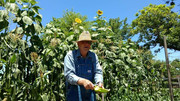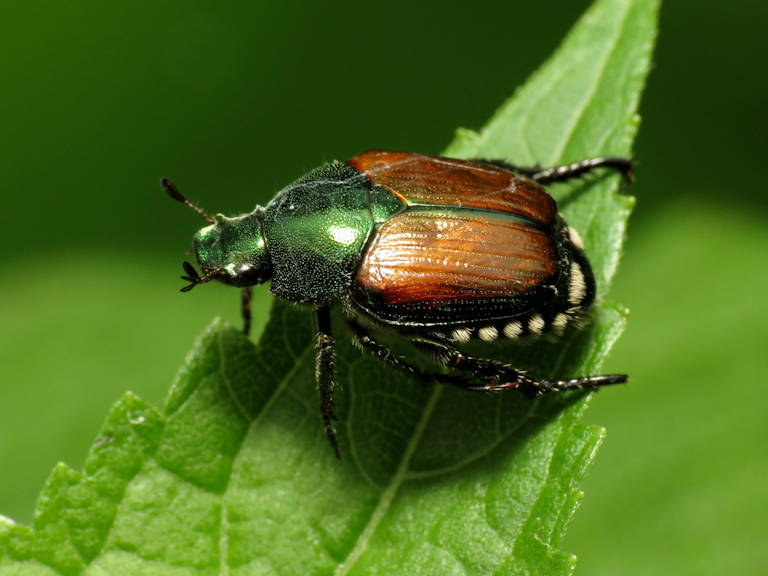What does that do to the soil?? Here spring has already sprung it seems...
I’ve never really researched it but I’ve heard that it boosts the hydrogen. Whatever it is I know my dad liked it when it snowed on his tilled garden.
What does that do to the soil?? Here spring has already sprung it seems...
I’ve never really researched it but I’ve heard that it boosts the hydrogen. Whatever it is I know my dad liked it when it snowed on his tilled garden.
You seem to have a great garden every year, so there must be something to O' Dad's methods...........

Thanks. I have learned lots from he and my mother...about gardening and preserving. Mom has been gone several years now but Dad still raises great gardens...better than mine. Keeps him going. He turned 88 last week. Here’s a pic from his garden. You can see corn, sunflowers and the pepper he picked for me. I dehydrated them that day.

Beautiful & healthy garden & he looks awesome as well..........
Is he holding a pepper??
Till or no till??
Yes, that’s a pepper. We definitely till. His place is very wet so often he is later than the rest of us getting his garden in in the Spring. But it does better and doesn’t burn up nearly as fast during the Summer. The only thing I grow that can compare with his is tomatoes. Everything else he grows is like it’s all from Texas...at least from a Texans point of view. You know, bigger and better.

Anybody get caught in the jar lid shortage?
Anybody get caught in the jar lid shortage?
I just looked on Amazon at the prices. Holy green beans, Batman!
Yep, everything remotely related has been jacked up there, from what I saw..
Some things I purchased prior, like a balaclava is @ least a third more........
Exploitation much??
The market is getting saturated w/ sanitizers & masks........ I'll pick up more for hiking when the price crashes.......
I haven’t seen him in awhile, I hope he is well. I worry like a mother hen.Hopefully leaningright reads your post..
Japanese Beetles are pretty bugs- but pests. Always use responsible organic solutions to control them. I mean, you'd never want to throw out the little lizards like me with the bath water!

Japanese beetles are not native to the U.S.A., so there are very few natural enemies that could keep them in check. Some species of parasitic wasps that attack Japanese beetles in the grub and adult stages have been introduced into the country, but they are not commercially available. However, there are some pathogens (organisms that cause diseases) that attack the grubs in the soil.
One naturally occurring bacterium that is commercially available is called Milky Spore®, which is an option for controlling grubs in the soil that damage the lawn. When spores of Milky Spore are ingested by Japanese beetle grubs, they die and in the process they release billions of new spores into the surrounding soil. One example of a commercially-available formulation of Milky Spore is produced by St. Gabriel Organics. Cost to treat 2,400 square feet is about $30. This product is most effective when applied in early- or mid-August, when the grubs are actively feeding. The soil must be above 65 degrees F. It works best to apply it just before rainfall, or consider watering in lightly after application to soak into soil. The number of applications recommended by the label should be considered, applying Spring, Summer, and Fall for two consecutive years (six total). While this significantly increases the expense, it is claimed to give faster control, for up to 20 years.
There are also several species of nematodes (tiny round worms) that attack Japanese beetle and other soil-dwelling grubs. NemaSeek® consists of live beneficial nematodes that actively search for grubs in the soil. Cost to treat 1,600 square feet is about $30. Nematodes need to be mixed with water to apply using a backpack sprayer. Usually, two applications—7 days apart, are recommended. Soil temperature needs to be at least 44 degrees F and it needs to stay moist (water every 3–4 days). Nematodes mostly die in winter so they will need to be reapplied annually.
For both milky spore and nematode applications, be cautious with your expectations! Reduced numbers of adult beetles emerging in 'your' yard doesn't prevent them from flying in from areas that aren't treated.
https://ipm.missouri.edu/MEG/2018/1/organic_management_japanese_beetle/
No, but I heard ppl were hoarding them as well........... What did you do to improvise??
Good thinking. Yeah, masks are everywhere now.
As luck would have it one of my friends yesterday posted some pics of things she had been canning. I asked about the lid shortage. She gave me a link to order them at Ace Hardware; they then ship them to the nearest store for you to pick up. They were the normal price, for now.
I haven’t seen him in awhile, I hope he is well. I worry like a mother hen.
I always buy a year ahead so I have had plenty for this year. “Plenty“ for me is about 10 boxes. I’m hoping that before next Spring I can restock.

